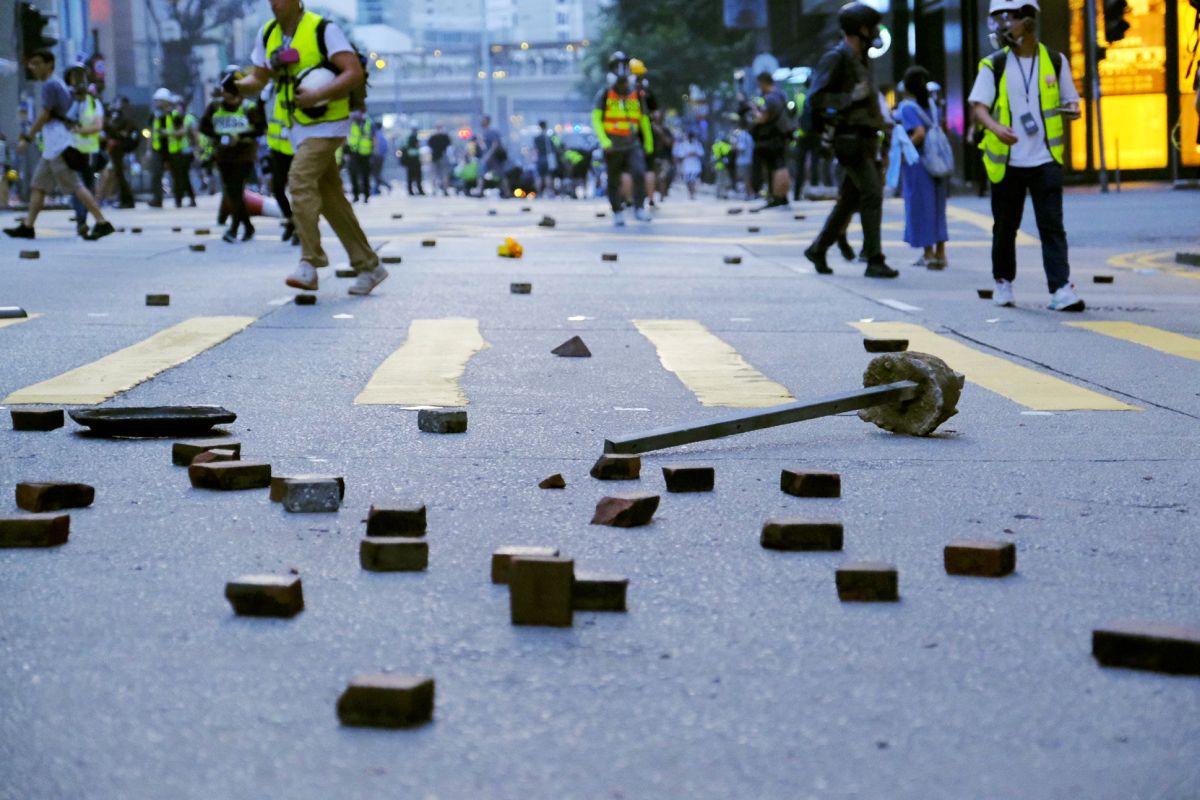Amid ongoing protests in Hong Kong, police asked the demonstrators to leave the city’s Polytechnic University (PolyU) campus as soon as possible, citing bad and dangerous conditions inside.
Dozens of demonstrators have refused to leave the blockaded campus following intense clashes with police, though most have either escaped, voluntarily left or been arrested by officers stationed outside, Hong Kong Free Press reported.
Advertisement
Police Commissioner Tang Ping-Keung said there was no deadline for the clearance of Hong Kong Polytechnic University (PolyU), which had been occupied by protesters for more than a week.
On Friday, Tang said that they hoped for a peaceful resolution to the deadlock. “We do not have any deadline”.
“We hope that inside will come out because the conditions are becoming increasingly unsafe”, Tang added.
During a press briefing, Tang said that the most of the rioters who had occupied the campus for days have been persuaded to leave, and the police worked very hard in the vicinity of the PolyU campus with some officers having been on duty for more than 30 hours in Xinhua news agency reported.
On Tuesday, United States Senate unanimously passed a bill that would require an annual review of the special treatment Hong Kong receives under US law after almost six months of protests in the Asian financial club.
Early in the day, China had condemned the passing of the Hong Kong Human Rights and Democracy Act of 2019 in the US Senate.
On Monday, around 800 students have been reported to be trapped in the Polytechnic University in the city, where the police were firing tear gas at any protesters trying to escape the campus.
Earlier, the university’s president, Teng Jin-Guang, had urged protesters to leave, saying the police had agreed to a ceasefire on the condition that protesters stopped their attacks.
The protests, which have been drawing massive crowds since June following a contentious proposed extradition law that has been pulled by the government, have mutated into a movement that seeks to improve the democratic mechanisms that govern Hong Kong and safeguard – or expand – the region’s partial autonomy from Beijing.
The controversial China extradition bill was withdrawn in early September but the movement has morphed into a wider campaign for greater democracy and against alleged police brutality.











